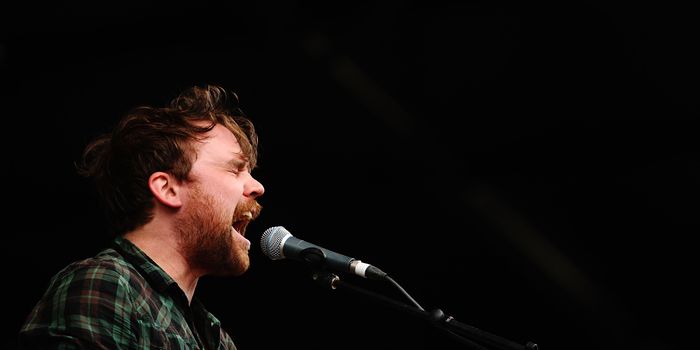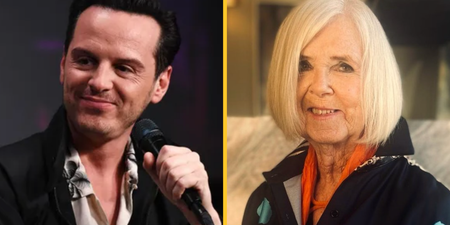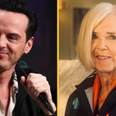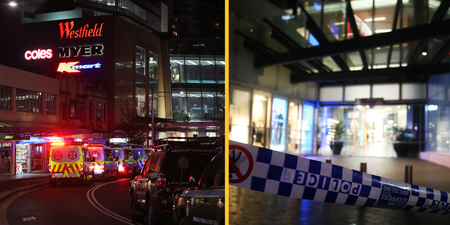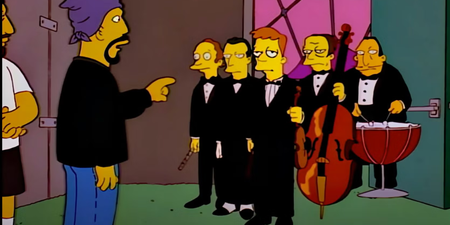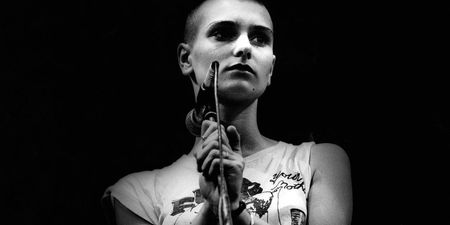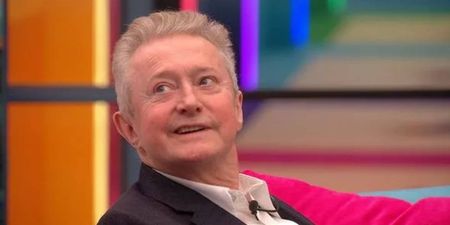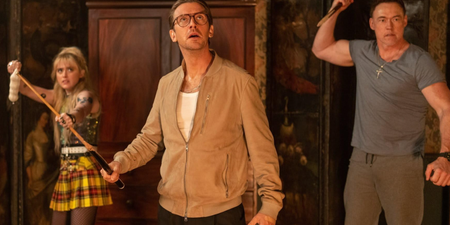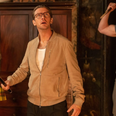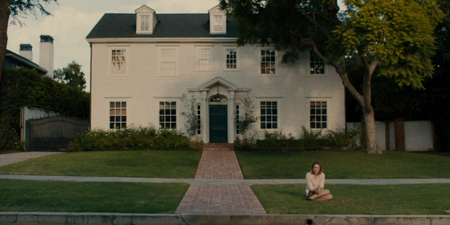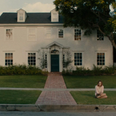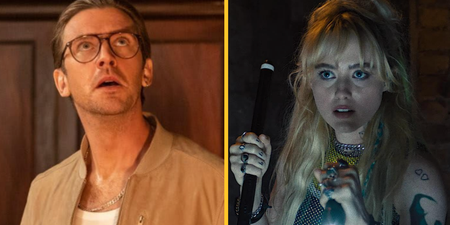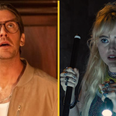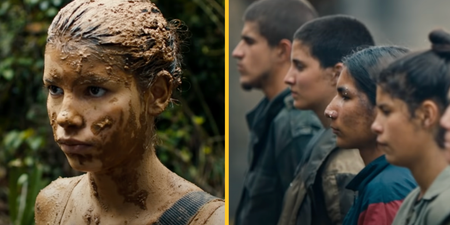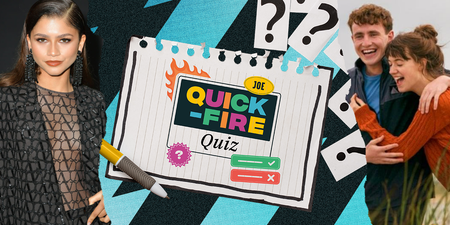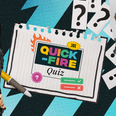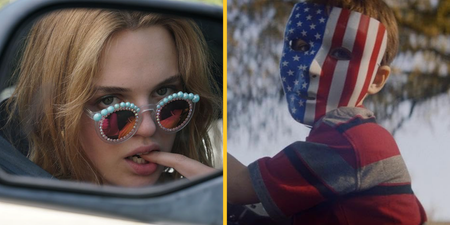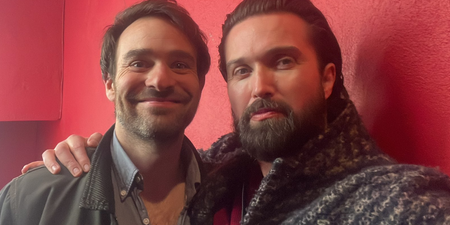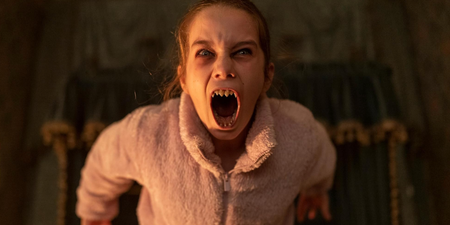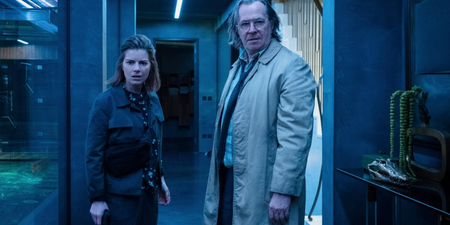Disclaimer: This article contains numerous references to suicide.
“This place right here? This skull between my ears? That is a bad neighbourhood.”
The words of Linkin Park frontman Chester Bennington during a radio interview recorded in February of 2017.
“I should not be in there alone,” Bennington admitted in that same conversation.
“I can’t be in there by myself. It’s insane. It’s crazy in here. This is a bad place for me to be, by myself.
“And so, when I’m in that, my whole life gets thrown off. I don’t say nice things to myself. There’s another Chester in there that wants to take me down.”
Five months later, Chester Bennington died by suicide and now his neighbourhood lies vacant.
He was 41 years old.
Two months prior, Chris Cornell, a close friend of Bennington’s, died shortly after capturing and commanding the attention of yet another full house at a Soundgarden show. He was 52.
As the year drew to a close, South Korean pop singer Kim Jong-hyun left behind a note confessing that he felt “broken from inside” and how his depression “finally devoured” him. He was 27.
In late April of 2018, global superstar Tim ‘Avicii’ Bergling died while on holiday in Oman, having retired from an industry that he believed might one day consume him. He was 28.
In early May, Scott Hutchison of Frightened Rabbit, a musician regarded and loved for his unflinching honesty and ability to somehow carve out the tiniest glint of light amidst potentially suffocating melancholy, realised the fate he had written about in one of his most renowned songs. He was 36.
These are recent, high profile examples. They are not unprecedented isolated cases, nor are they exclusively unique to celebrity, gender, or one focused vocation or career path.
A barrage of household-name male suicides in the music world in the space of one year gives pause for specific thought, however.
We look to music for escape. We establish heroes. We live vicariously through their thoughts, words, actions, victories and losses. This relationship, particularly where genuine love, respect and fandom develops, is one of pure idealism and romance.
There’s a danger present, but generally you know the boundaries, the dreamlike safeguards in the sound.
Your heroes aren’t supposed to fall by their own hand and to their own demons. We want a sense of reality, yes, but we would like for everyone to win, also.
The conclusions to the stories of the names above feel increasingly commonplace, yet never matter-of-fact. How could they?
The names above belong to human beings, and human beings build, and human beings break. The end results here are final in one respect, forever in another.
You can dive into the particulars, if you so desire. The headlines that reveal too much, the paragraph summaries that spare no detail, the compact descriptions that care little for trigger warnings.
Those not composing the aftermath narrative are often the ones with the most to say.
Scott Hutchison’s Twitter account is still online, and you may choose to interact with it as some kind of strangely modern book of condolences.
His final public statements, both of them, are concise, declarative and brutally tragic.
Be so good to everyone you love. It’s not a given. I’m so annoyed that it’s not. I didn’t live by that standard and it kills me. Please, hug your loved ones.
— Scott Hutchison (@owljohn) May 8, 2018
The second one is the one that stops you in your tracks.
I’m away now. Thanks.
— Scott Hutchison (@owljohn) May 8, 2018
An entire lived-in world in four words and two full stops.
“I’m away now. Thanks.”
It is difficult to stare at those words for a prolonged period of time and maintain composure. You find yourself lost in them. You find yourself lost in all of it.
One is wary of romanticising such a definitive, chosen exit. Equally, one refuses to condemn. It’s complicated, this life.
The music industry is tricky to make sense of, too.
A new report by Citigroup reveals that artists made only 12% of the $43 billion generated in music industry revenue in the United States of America last year.
Tech companies, record labels and radio stations are attributed as benefiting the most from sales.
The above figure is actually higher than in recent years – it amounted to just 7% in 2000.
In an industry uncompromising and increasingly intangible for even the surest of souls, it is perhaps unsurprising that those vulnerable individuals on the lowest rung of the ladder – generally those who are doing the creating – are often trampled underfoot.
Structure is hard to come by and harder still to maintain in a game that feels entirely unregulated.
Security and support for people experiencing difficulties of any nature, be it financially or emotionally motivated, aren’t regarded as the norm.
In the wake of Scott Hutchison’s passing, a great many tributes followed. Among them, Dublin artist James Vincent McMorrow and a valid question.
https://twitter.com/jamesvmcmorrow/status/994865868763955204
McMorrow would quote a line from Frightened Rabbit’s ‘Head Rolls Off’ in his follow-up missive.
“And while I’m alive, I’ll make tiny changes to earth.”
In his time on this earth, Scott Hutchison did that. But it wasn’t enough to save him.
It is worth noting that McMorrow isn’t categorically advocating that the music industry be solely responsible for the loss of Hutchison and his peers. More that their shared house may not be fit for purpose.
Indeed, it is difficult to truly ascertain if the music industry is markedly different from other professions when it comes to high rates of suicide. Even the recent trend of newsworthy deaths may just be a case of how the numbers fall.
With that said, a comprehensive study by Help Musicians UK in November of 2016 found that members of the music community were three times more likely to experience depression than the general public.
It is important to recognise the significant relationship between depression and other mental health problems and suicide, while also acknowledging that these problems do not fully account for suicide. Many other factors like isolation, burdensomeness, addiction problems, relationship issues and trauma all potentially have a part to play in any one individual’s suicide.
The issue is complex and fragile.
A World Without Rules
“It’s really, really, really scary when you hear of a perceived successful artist dying by suicide,” notes Mary-Kate Geraghty, alias MayKay, formerly of Fight Like Apes and recent full-time Le Galaxie recruit.
“I’ve never had suicidal thoughts myself,” she adds, “but it’s a very scary thing because you start to equate it to regular stuff. He was doing well, and I’m not. He was making money, and I’m not. He was on tour, and I’m not. He had a girlfriend, and I don’t.
“That’s just not the way it works and I hope that people don’t equate the suicide of a musician to him thinking logically about why he would do that. It’s just not where it comes from.”
Geraghty says that she listens to music mostly to escape, to fantasise, to day-dream pain away. A decade in the industry has taught her a great deal, even if the surroundings haven’t quite caught up.
“I’ve often found myself envious of people I know who went into secondary school and tried to get enough points in the Leaving Cert to get into a particular vocational college course and get into that job,” she admits.
“Then they go out with someone, move into a house, get married, have kids, and it seems like they have this plan, but the vocation they went into seems to have guided that plan. It has set office hours, set holidays, there’s lot of rules. There are literal contracts of how they can and can’t behave.
“With the music business, and maybe the entertainment business generally speaking, there isn’t the same rule book. And that is both its beauty and its tragedy, because there’s no starting or stopping. Anybody that I have seen struggling creatively, I’ve only ever really seen them figure a way out of that by having someone give them a regimented way of dealing with it.”
She takes a moment to acknowledge the curious contradictions in her field.
“There are very rare exceptions, where some people can delve further into the creative process and create something new and come out of it that way, but how do you put rules in place for something that completely flourishes without rules?
“Part of me says that the beauty of the business is to be celebrated and lauded for not following rules, and the second part goes, ‘No, that’s bullshit’ because we’re not protecting each other, and we’re not making it a vocation when it should be.”
Later, Geraghty makes an important distinction, a point that Mercury Music Prize winner James Blake recently raised when highlighting his own struggles with depression and suicidal thoughts.
“A bit of me thinks that propagating the idea that anxiety and depression comes with creativity or comes with a good standard or depth of creativity probably isn’t a good thing, while still allowing the conversation to be open,” she says, adding that she wishes that she knew the answer to all of this.
It’s fair enough that she doesn’t.
For the determinedly avant-garde and brilliantly inventive Róisín Murphy, music emerged as her saviour long before she ever thought to create it.
“My uncle was a musician and I saw lots and lots of live music from when I was a little small child onwards,” she recalls.
“Lots and lots of people singing and everyone singing songs. In Ireland, I think songs are like a language, almost. People have songs in their repertoire that they can sing from start to finish. Growing up as a child, I used to look at them in my Auntie Linda’s, and they’d be sitting there with a few drinks and it would go around the room and everybody would sing.
“The songs became part of their identity, the songs that they chose to sing, in my mind. Maybe there’s a connection between… there’s an Irish sorrow, you know? I hesitate to call it an Irish depression, but it’s music that lifts them. We’ve used music to lift that, as a culture.”
Murphy turns the clock back to when she moved to Manchester and the separation of her parents. It was, she remembers, an extremely difficult period.
“But getting obsessed with music and going to gigs and buying records strengthened my sense of self, my sense of identity and purpose and where I was going,” she nods.
We speak of the harnessing power of music, how much it can give a person. It can take away from a person, too, as Murphy underlines.
“Once you get into the business side of it, and once you get into the side of standing in front of huge audiences, you feel their wants and desires, their disappointments, in what you’re doing. You feel that a hundred-fold compared to a smaller audience,” she says.
“When you’re a DJ and you’re playing in front of 5,000 people who have all paid 35 quid to come and see you, and they’re all standing there looking at you – which is what people do in these environments – you want as a sentient human and brilliant music person to stretch the boundary of what you’re doing.
“So maybe you put something on that’s a bit deeper and bit more challenging and you get this immediate rejection.
“Your audience becomes one amorphous thing that either feels good about what you’re doing or you’re not really working, it’s not really connecting. You become at the beck and call of an amorphous thing that you cannot control, and I think that can be detrimental.”
The Vague Chorus
The influence of the audience speaks to a very modern problem for musicians. The rise and normalcy of social media increases access, removes mystique, and can invite aggressive and unforgiving pressure, not to mention outright abuse.
Geraghty cites the likes of David Bowie and Prince as examples of a different era where the distance between punter and performer was of mutual benefit.
“They lived in the actual stars, you know? So far, far, far away that you can’t get to it, and so you experience it in a different way,” she explains.
“I don’t think that anybody should have to keep everything to themselves, but I also don’t need to have it all. We’ve seen it so many times: ‘Oh, I’m having a bad day’ and it’s so great that you can talk about it. And I’m not saying that everyone has access to friends and family; I know they don’t.
“I suppose what I hate a lot, and I think it’s fucking terrifying for people’s personal stability, is to look to the sewer for guidance, and to look to the sewer for help, because what are you expecting to happen then?”
Each artist has their own path, support structure and struggle. Artistic evolution and growing success can also alter an individual’s circumstances, meaning there’s no one-size-fits-all solution.
“With DJs, they’re going around on their own or maybe just with one person, whereas when you’re in a band you are in a family environment, or ideally you have created a family unit to travel and be with, and to be onstage and share experiences with,” considers Róisín Murphy.
“It’s a lot less lonely. If you become a superstar, and even if you have the band and the crew with you, you become separated from them. Your reality is not shared with anyone. Your musical journey is not being shared with anyone. It’s notoriously difficult to deal with.”
Becoming a superstar isn’t something that most of us ever have to imagine, let alone end up faced with adapting to at a whiplash-inducing pace.
“If somebody is very, very high profile, they may have a lot of visibility and the appearance of connectivity, but actually on a personal level they may be very isolated,” offers clinical psychologist Dr Eoin Galavan.
“A person may have a lot of people in their life but there may be a lack of ordinary trusting friendships and relationships that are there whenever you need them, that there’s a sense of reciprocal involvement – ‘I’m like you, you’re like me, we’re kind of like each other together in the world, we both do this together’.
“Being unique and special can separate you out from the world, and potentially that has a risk factor to it,” Galavan adds, carefully noting that this is a speculative hypothesis rather than the definite article.
To that end, he outlines that it would be too simplistic to blame the music industry point-blank for the loss of young men.
“There are cultural dynamics in every industry that may facilitate or protect against suicidality,” begins Galavan.
“I wonder in the music industry is there a cultural permission for men, and young men in particular, to engage in self-destructive behaviour that is kind of glorified in a sense? Whether that’s excessive substance use or alcohol misuse, risky sexualised behaviour or other kinds of behaviours where self-care and moderate living lifestyles are not exactly promoted.”
Galavan contrasts this with the construction industry, itself dominated by young men, noting that suicide is a serious problem.
“But it’s not just about the demographic of men,” he offers. “There are other things in that industry that make it more likely for men to kill themselves. A culture of hyper-masculinity, a culture of risk-taking behaviour, a culture of a high level of tolerance of substance misuse; all are deemed to be part of why they have a very high rate of suicide in that industry.
“I wonder if some of those things don’t map on to the music industry. Substance abuse, for example, has a very, very high correlation with suicidal behaviour. It’s a prominent risk factor.”
Galavan refers to as an overall philosophical shift that needs to happen with regards to how society recognises and approaches mental health issues.
“Access to therapy and mental health care for people who are suicidal in Ireland at the moment is patchy at best and very poor at worst,” he notes.
“Frequently, people find that their only option is to go down a medical route either through their GP or through A&E, when a psychological or psychotherapeutic or social engagement would be far more appropriate to their needs. The availability of suicide-specific mental health care is extremely thin on the ground.
“We need to further improve access to suicide-specific mental health care, so when people are struggling with suicidality, that they can get access to therapy that is delivered by someone who has expertise in addressing it. Regardless of the diagnosis that you may have, regardless of whether you meet the criteria for a depressive disorder or some other anxiety disorder, whatever it might be. Suicidal ideation should be sufficient to get you access to mental health care.”
My Own Summer
It should be, but it isn’t always the case. I’m not a musician – well, maybe a failed one – but believe myself to be a creative person, and my own lifestyle structures and security vary.
I was also diagnosed with depression in my late teens, but it’s been a part of me since my earliest childhood memory, and almost certainly before that.
Anxiety arrived later. I’ve been in and out of therapy, I’ve been on and off meds. I dropped out of school weeks before my Leaving Cert to check myself into a psychiatric hospital because I didn’t want to die.
It comes and goes. I can function, for the most part. When it hits hard, it wins. But I’m still here.
In terms of sufficient access to health care, I doubt I’ll ever forget the time that a representative from the HSE laughed in my face and told me that there was “nothing wrong” with me as he refused my request for subsidised counselling.
Not everyone understands compassion, even if you think their position should make it a prerequisite.
A couple of months ago, I wrote close to 2,000 words on the new Kanye West album.
He’d just released Ye, which instantly become the most notorious, divisive, and reviled record of his career. The piece I wrote put forward the argument that now was not the time to ‘cancel’ Kanye West – or human beings in general, while we’re briefly on that violently toxic current trend – and that despite his very public flaws, we should embrace his honesty, vulnerability and fearlessness.
I wrote about how an opening track like ‘I Thought About Killing You’ should be hailed for its astonishing bravery, how people were missing the point of ‘Yikes’ and seizing on admittedly clumsy lines and reference points, how that even though Ye feels unfocused and does indeed pale in comparison to a previous bulletproof body of work, that it exists at all is worth celebrating, as is an author who arguably won’t get the respect he should during his lifetime.
I wrote about how the arguments against Kanye West have proven increasingly difficult to wave away, how his critics have laid down valid markers, how he’s provided armour-piercing rounds by the fistful with his social media presence and by daring to finally release an imperfect album that beckoned wolves. I tied myself in knots trying to connect all of these dots.
I trashed the words and didn’t publish anything. I couldn’t make the point. I was projecting. My first proper active listen of Ye came as I walked along busy Dublin streets, sunlight fading, towards a therapy session. My second came on the walk back, more people filtering into town now. Head down, stay lost, hide tears. Kanye’s words flooded in, and much as I respected them, I couldn’t disappear.
One week later, to the day, I sat at my desk and found myself unable to write anything at all, unable to do anything. My arms felt like lead, my head simultaneously submerged and tremendously pressured. A meeting about one thing became another as I was shown compassion and granted time off.
A month prior, I came off anti-depressants and was immediately hit with a viral infection. Brain and body effectively downed tools for what ultimately amounted to about eight weeks. I barely left my room.
And then, when I needed it most, a signal that felt designed just for me.
Kanye again, only this time full of focus, light and love. KIDS SEE GHOSTS marks the debut long-form team-up with Kid Cudi. Both of these men have very visibly suffered demons, even falling out at one point.
To come back with a statement like this, to raise each other up in such defiant, euphoric fashion, and to use their wounds as armour is quite astounding.
I can’t explain just how much this album means to me without rambling, and I feel like I’ve done enough of that for now. Just trust me when I say that it helped where other things could not.
Out of the Storm
Kanye, for his own part, noted in a recent interview with Jimmy Kimmel that he’d thought about his own tombstone and how it might read, ‘Are You Happy Now?’
In the music industry, stories of struggle come with the territory but that shouldn’t negate the damage done. Social media and a related willingness, enthusiasm and naturalisation of making private information public has only increased the visibility of relevant, insightful case studies as shared by musicians from all walks of life and levels of success.
For every James Blake reasonably requesting people to ditch their “unhealthy and problematic” labels, for every Michael Angelakos of Passion Pit repeatedly outlining just how precarious his personal and professional precipice really is, for every Róisín Murphy simply expressing the frustrated wish that she would appreciate a bit of recognition every now and then, there are hundreds and thousands more in this odd community who can barely keep the lights on and a roof over their head.
Get a ‘real’ job, some might suggest. They already have. Many of them have more than one. Some have more than that.
The philosophical shift of which Eoin Galavan speaks is of paramount importance.
Generally speaking, we are content to pay money for concert tickets, lose upwards of 72 hours in a field in the middle of nowhere, get lyrics and artwork tattooed onto our bodies and forge deep-rooted connections with familiar strangers that don’t know our names.
Are we as willing to recognise and legitimately support, in every sense, the people who gift us these opportunities for escape?
At home, we bear witness to independent and committed Irish artists finding themselves pushed out of their homeland as a deep feeling of disenfranchisement takes hold.
“The bit that gets me is when I see Ireland used so readily as the artistry of us all,” says Mary-Kate Geraghty.
“Our writers, our singers, our poets, our actors, our land, our everything used to promote the country, and to drive business and tourism this way without really giving a second thought to the people who are creating that.”
Try and picture noted Avicii fan Leo Varadkar chairing a debate on musicians’ rights in Dáil Éireann. The optics are tough to conjure up.
This isn’t a soapbox moment. It should be painfully obvious by now to everyone that the availability and affordability of mental health services in Ireland, for all who require them, is troublingly askew.
The latest statistics issued by the Health Service Executive reveal that men aged between 45 and 54 are the most likely to die by suicide in this country, with men accounting for almost 80% of suicides recorded in the State in 2016.
As Dr Galavan notes, until significant resources are committed to mental health, the situation isn’t likely to change.
Whether societal stigma – which continues to soften thanks to dedicated hard work – or governmental barriers and apathy block the way, the results will remain the same. The casualties will not suddenly cease. Thoughtful eulogies will not vanish. Human beings will not magically heal.
As noted, this isn’t a closing call to arms. Yes, I want you to be angry. I want you to care. I want you to believe in, practice, and promote empathy. Do with these things what you will, for it is on you to decide.
In trying to draw some kind of line underneath all of this, in grasping for an answer where I know there isn’t one, I find myself drifting back towards Frank Ocean.
Before he put out Blonde, arguably the best album of this decade, Ocean presented the world with Endless, a visual record of carefully-crafted odds and ends set to a stark monochrome spot of patient DIY.
A spiral staircase proves the fruit of his labours, one that he scales as credits burn into the screen. We don’t get to see where it leads. We don’t get to go any further with Frank Ocean. We find our own way through the pieces left behind.
Two years on, I come back to this image, to what it all means, or what it may not mean at all. Again, you can get lost. You can get found, too.
Like the very concept, creation, and community of music itself, that idea, that chance, that hope belongs to everyone.
If you are struggling with your mental health, or if you’re worried about a loved one, these are a number of resources you can use.
LISTEN: You Must Be Jokin’ with Aideen McQueen – Faith healers, Coolock craic and Gigging as Gaeilge
